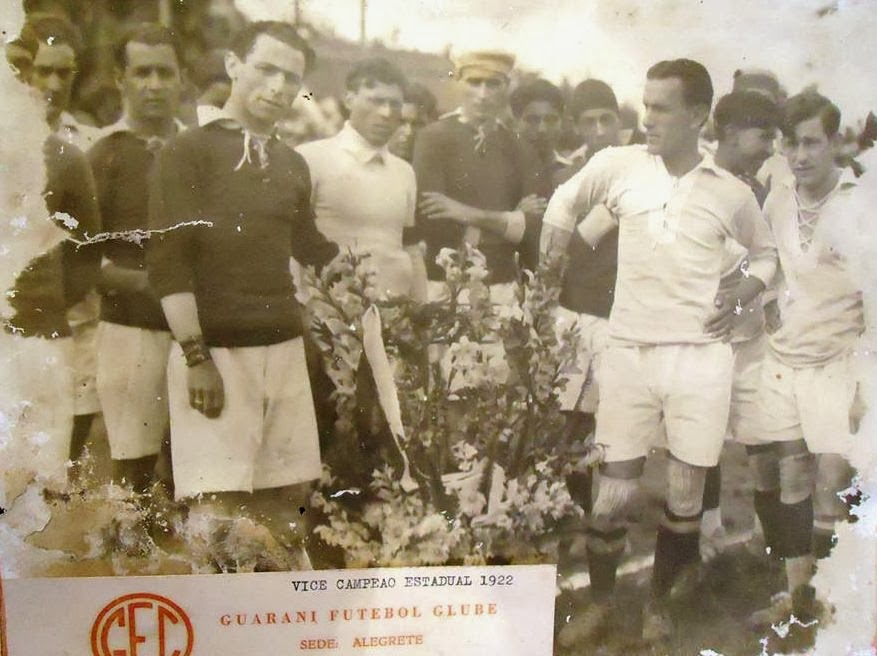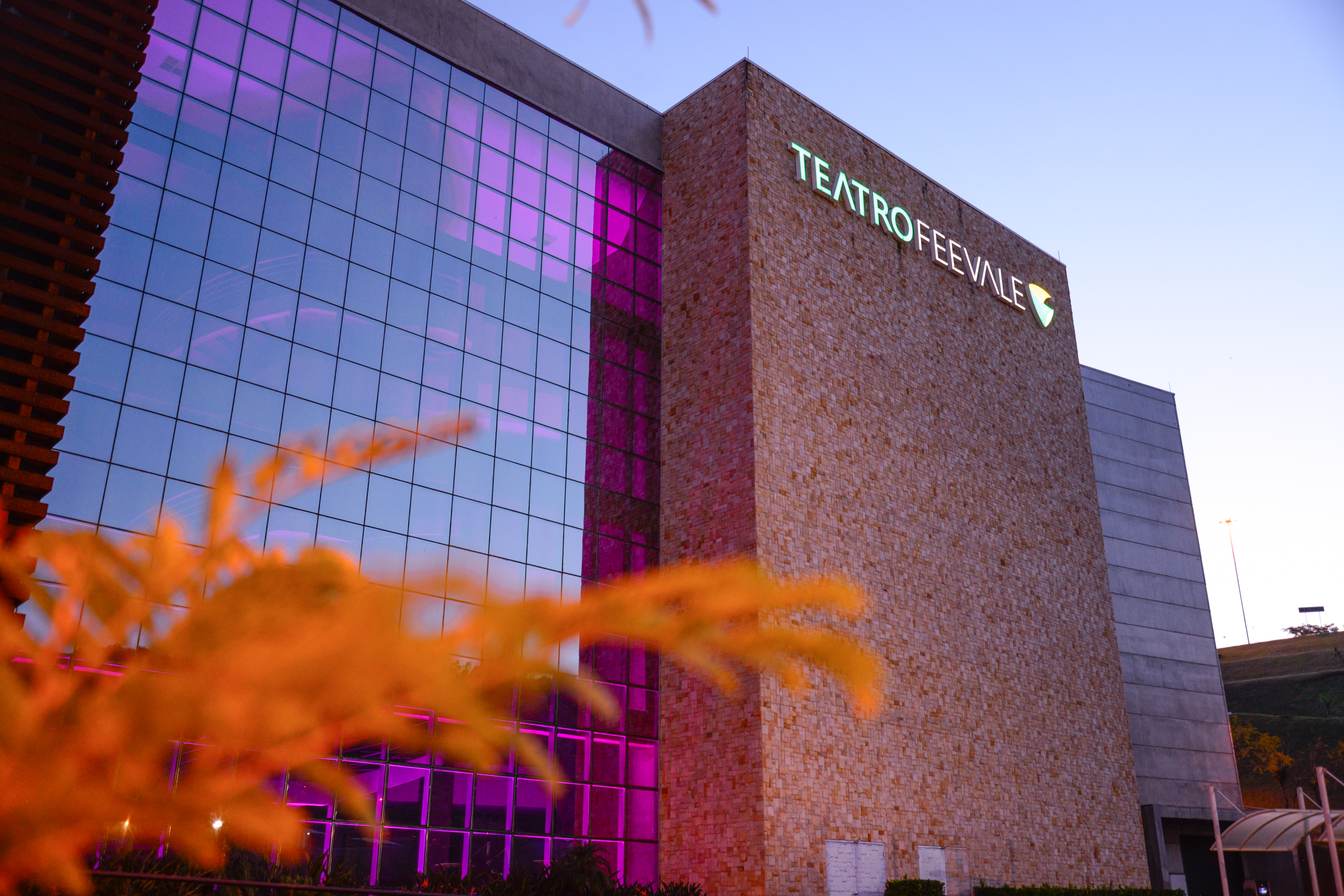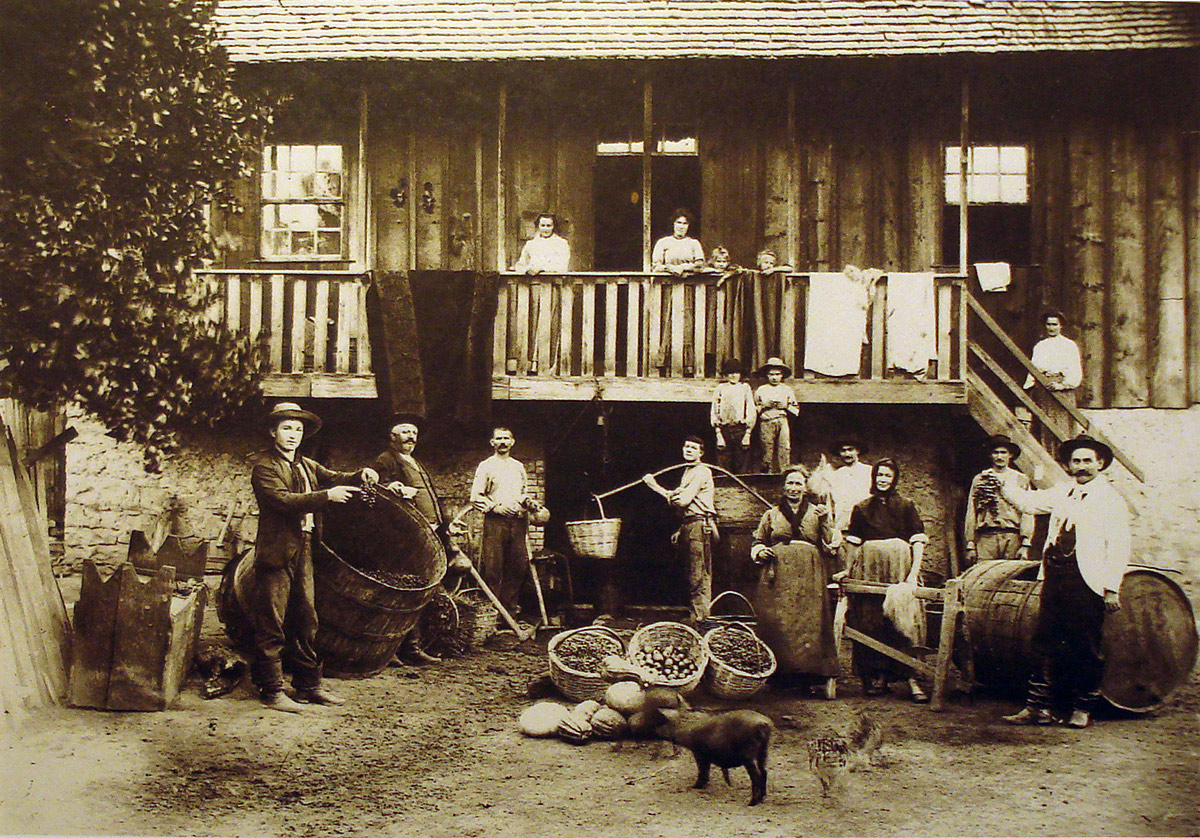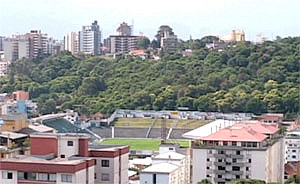|
2016 Campeonato Gaúcho
The 2016 Campeonato da Primeira Divisão de Futebol Profissional da FGF (2016 FGF First Division Professional Football Championship), better known as the 2015 Campeonato Gaúcho or Gaúcho, was the 96th edition of the top flight football league of the Brazilian state of Rio Grande do Sul. The season began in January and ends in May. Format The tournament was played in four phases: * 1st phase (qualifying): all 14 teams were in a single group (Group A) and in a single shift. The top 8 placed qualified for the 2nd phase and the bottom three were relegated to[2017 Gaucho Football Championship - Access Division. * 2nd phase (quarter-finals): contested by the 8 best teams in the 1st phase, in a single game. If the tie persisted at the end of regular time, a penalty shootout would be made to define the semifinalist. * 3rd phase (semifinal): contested by the 4 winning teams of the 2nd phase, in round robin matches. If there was a tie at the end of both games, the away home rule would be ... [...More Info...] [...Related Items...] OR: [Wikipedia] [Google] [Baidu] |
Campeonato Gaúcho
The Campeonato Gaúcho (English: Gaúcho Championship), officially named as Campeonato Gaúcho de Futebol Série A and commonly known as the Gauchão or the Gauchão Ipiranga (company), Ipiranga for sponsorship reasons, is the top-flight professional State football leagues in Brazil, state football league in the Brazilian States of Brazil, state of Rio Grande do Sul. It is run by the Federação Gaúcha de Futebol, Rio Grande do Sul Football Federation (FGF). The Grenal, rivalry of two of the better-known Brazilian teams (Grêmio Foot-Ball Porto Alegrense, Grêmio and Sport Club Internacional, Internacional) have a significant impact in the history of the tournament. Since 1940, the Grenal duo did not win the title on just four occasions: the defunct Grêmio Esportivo Renner, Renner was champion in 1954, Esporte Clube Juventude, Juventude almost 44 years later in 1998, Sociedade Esportiva e Recreativa Caxias do Sul, Caxias, in 2000, under Tite (football manager), Tite's command, ... [...More Info...] [...Related Items...] OR: [Wikipedia] [Google] [Baidu] |
Grêmio Esportivo Glória
Grêmio Esportivo Glória, commonly referred to as Glória, is a Brazilian football club based in Vacaria, Rio Grande do Sul Rio Grande do Sul (, ; ; "Great River of the South") is a Federative units of Brazil, state in the South Region, Brazil, southern region of Brazil. It is the Federative units of Brazil#List, fifth-most populous state and the List of Brazilian s .... It currently plays in Campeonato Gaúcho Série A2, the second level of the Rio Grande do Sul state football league. History The club was founded on November 15, 1956. They won the Campeonato Gaúcho Second Level in 1988 and Copa FGF in 2021. Honours * Copa FGF ** Winners (1): 2021 * Recopa Gaúcha ** Runners-up (1): 2022 * Campeonato Gaúcho Série A2 ** Winners (2): 1988, 2015 Stadium Grêmio Esportivo Glória play their home games at Estádio Altos da Glória. The stadium has a maximum capacity of 8,000 people. References {{DEFAULTSORT:Gloria, Gremio Esportivo Association football clubs est ... [...More Info...] [...Related Items...] OR: [Wikipedia] [Google] [Baidu] |
Sport Club São Paulo
Sport Club São Paulo, commonly referred to as São Paulo-RS, is a Brazilian football club based in Rio Grande, Rio Grande do Sul. It currently plays in Campeonato Gaúcho Série B, the third level of the Rio Grande do Sul state football league. They competed in the Série A three times. History Sport Club São Paulo were founded on October 4, 1908, by Adolpho Corrêa and other young sportsmen. The club were named São Paulo after Adolpho Corrêa's home city. São Paulo won their first title, which was the Campeonato Gaúcho, in 1933. They won the Copa Bento Gonçalves in 1985. The club competed in the Série A three times. São Paulo's first participation was in 1979, when they finished in the 42nd place. The club competed again in 1980, finishing in the 41st place. They competed for the last time in 1982, when they ended in the 31st place in the league. On 6 October 2021 William Ribeiro was charged with attempted murder after kicking a referee in the head during a leagu ... [...More Info...] [...Related Items...] OR: [Wikipedia] [Google] [Baidu] |
Esporte Clube São José
Esporte Clube São José, commonly referred to as São José, is a Brazilian professional club based in Porto Alegre, Rio Grande do Sul founded on 24 May 1913. It competes in the Campeonato Brasileiro Série D, the fourth tier of Brazilian football, as well as in the Campeonato Gaúcho, the top flight of the Rio Grande do Sul state football league. History São José was founded in 1913, when, among conversations and football games during class breaks at São José High School, a group of students decided to leave the school fields to face big teams in the professional fields. With the encouragement of Brother Constantino José, an admirer of Italian football and intellectual mentor of the venture, six students formed the Esporte Clube São José, which from its birth showed the will to seek new challenges. Léo de la Rue, one of the founders, inaugurated the presidents' gallery, in a management where each player bought his own uniform and contributed with a monthly fee of $500 ... [...More Info...] [...Related Items...] OR: [Wikipedia] [Google] [Baidu] |
Passo Fundo
Passo Fundo is a Municipalities of Brazil, municipality in the north of the southern Brazilian state of Rio Grande do Sul. It is named after its river. It's the tenth largest city in the state with an estimated population of 204,722 inhabitants living in a total municipal area of 780 km2. Passo Fundo is a city well known because of the singer, composer and filmmaker Vitor Mateus Teixeira, better known as Teixeirinha, he was born in the city of Rolante in Rio Grande do Sul, and adopted the city of Passo Fundo as his own, the singer liked a lot from the city, in 1960 he composed the song "Gaúcho de Passo Fundo", which was very successful and made Passo Fundo become a known city throughout Brazil. Teixeirinha composed two more songs in homage to the city of Passo Fundo, they are "Saudades de Passo Fundo" (1963) and "Passo Fundo do Coração" (1973), as well as producing and starring in a film set in the city, a film called "O Gaucho de Passo Fundo", released in 1978. Geograph ... [...More Info...] [...Related Items...] OR: [Wikipedia] [Google] [Baidu] |
Esporte Clube Passo Fundo
Esporte Clube Passo Fundo, commonly referred to as Passo Fundo, is a Brazilian football club based in Passo Fundo, Rio Grande do Sul. It currently plays in Campeonato Gaúcho Série A2, the second level of the Rio Grande do Sul state football league. History The club was founded on January 10, 1986, as a result of a merger between 14 de Julho (founded in 1921) and Gaúcho (founded in 1918), and adopted as its colors 14 de Julho's red and Gaúcho's green. Gaúcho left the merger after only one year, but the club kept its name and colors. They won the Campeonato Gaúcho Second Division in 1986. Honours State * Copa FGF ** Runners-up (1): 2022 *Campeonato Gaúcho Série A2 ** Winners (1): 1986 * Copa Serrana ** Winners (1): 2013 City * Campeonato Citadino de Passo Fundo ** Winners (19): 1922, 1925, 1930, 1943, 1945, 1947, 1955, 1956, 1957, 1958, 1958, 1959, 1959, 1960, 1962, 1969, 1978, 2020, 2022 Season Records Notes:* 2000 and 2001:Four teams had byes in the first stage ... [...More Info...] [...Related Items...] OR: [Wikipedia] [Google] [Baidu] |
Novo Hamburgo
Novo Hamburgo ('New Hamburg', ; ) is a Municipalities of Brazil, municipality in the southernmost Brazilian state of Rio Grande do Sul, located in the metropolitan area of Porto Alegre, the state capital. As of 2020, its population was 247,032. The city covers an area of , and the average temperature is , which is mild for the region. The Sinos River runs through the urban area. Consolidated by German immigrants, the city was named after Hamburg, Germany. Novo Hamburgo's population is still predominantly of German descent. In the 1980s, Novo Hamburgo received the nickname of "the national capital of shoes", attracting many athletes, tracks and companies connected to the sport. Nowadays, the city is the industrial centre of the Sinos River Valley, the economy of which is based mainly on the manufacture of shoes and the associated leather goods supply chain. History The area of the city was first settled by Portuguese immigrants in the mid 18th century, but it would grow to the s ... [...More Info...] [...Related Items...] OR: [Wikipedia] [Google] [Baidu] |
Esporte Clube Novo Hamburgo
Esporte Clube Novo Hamburgo, commonly referred to as Novo Hamburgo, is a Brazilian football club based in Novo Hamburgo, Rio Grande do Sul. It currently plays in Campeonato Gaúcho Série A, the first level of the Rio Grande do Sul state football league. Novo Hamburgo plays home games at the Estádio do Vale, which has a maximum capacity of 5,196. History On 1 May 1911, employees of Adams Footwear Factory founded an association. In that day, during the celebrations of the Worker's Day, as it used to happen every year, took place a social gathering event between the employers and employees of the factory. After the barbecue ended, they always played football. Manoel Lopes Mattos, João Scherer, Aloys Auschild, Manoel Outeiro, João Tamujo and Adão Steigleder decided to found a football club. The suggested name was Adams Futebol Clube, but the name they chose was Sport Club Novo Hamburgo, later renamed to Esporte Clube Novo Hamburgo (). As Brazil entered World War II in 1944 ... [...More Info...] [...Related Items...] OR: [Wikipedia] [Google] [Baidu] |
Lajeado, Rio Grande Do Sul
Lajeado is an important city in the valley of the Taquari River (Rio Grande do Sul), Taquari River, Rio Grande do Sul, Brazil. The population is 97,432 (2022 est.) in an area of 90.09 km2. Some of the largest distributors of food and fuel of the state are found in Lajeado. The city is mostly urban. Its current mayor is Marcelo Caumo. It was founded on January 26, 1891, when it was separated from the municipality of Estrela, Rio Grande do Sul, Estrela. It was colonized by German and Italian people. The city has a university: Univates. Notable people * Pedrinho Gaúcho, football player * Rodrigo Ely, football player * Marcel Stürmer, artistic roller skater See also * List of municipalities in Rio Grande do Sul References {{Authority control Lajeado, Rio Grande do Sul, Municipalities in Rio Grande do Sul ... [...More Info...] [...Related Items...] OR: [Wikipedia] [Google] [Baidu] |
Clube Esportivo Lajeadense
Clube Esportivo Lajeadense, commonly referred to as Lajeadense, is a Brazilian football club based in Lajeado, Rio Grande do Sul. It currently plays in Campeonato Gaúcho Série A2, the second level of the Rio Grande do Sul state football league. History The club was founded on April 4, 1911. They won the Campeonato Gaúcho Second Division in 1959 and in 1979. Honours * Campeonato Gaúcho ** Runners-up (1): 2013 * Copa FGF ** Winners (2): 2014, 2015 ** Runners-up (1): 2011 * Recopa Gaúcha ** Winners (1): 2015 * Super Copa Gaúcha ** Winners (1): 2014 *Campeonato Gaúcho Série A2 The Campeonato Gaúcho Série A2 (Gaucho Championship Series A2) is the second tier of the professional state football league in the Brazilian state of Rio Grande do Sul Rio Grande do Sul (, ; ; "Great River of the South") is a Federativ ... ** Winners (2): 1959, 1979 * Copa Sul-Fronteira ** Winners (1): 2014 Stadium Clube Esportivo Lajeadense play their home games at Arena Alviazul. ... [...More Info...] [...Related Items...] OR: [Wikipedia] [Google] [Baidu] |
Caxias Do Sul
Caxias do Sul () is a city in Rio Grande do Sul, Southern Brazil, situated in the state's mountainous Serra Gaúcha region. It was established by Italian Brazilian, Italian immigrants on June 20, 1890. Today it is the second Largest cities in Rio Grande do Sul by population, largest city in the state of Rio Grande do Sul. In 2020, the population of Caxias do Sul was estimated at 517,451 people, many of whom are of Italian and German descent. The demonym of the citizens of Caxias do Sul is ''Caxiense''. History The history of Caxias do Sul began before the arrival of the Italian immigrants when the region was being roamed by cattlemen and occupied by Indigenous peoples in Brazil, Indigenous peoples. The region was called "Indians' Field" in that period. The arrival of Italian immigrants, mostly farmers in search of a better life from the Veneto, Lombardy, Trento (northern Italy) as well as other regions in Italy, began in 1875 in Nova Milano. Although they received governme ... [...More Info...] [...Related Items...] OR: [Wikipedia] [Google] [Baidu] |
Esporte Clube Juventude
Esporte Clube Juventude (), or simply Juventude, is a Brazilian football (soccer), football club in Caxias do Sul, Rio Grande do Sul. The club currently competes in the Campeonato Brasileiro Série A, the Brazilian football league system, first tier of Brazilian football, as well as in Campeonato Gaúcho, the Rio Grande do Sul State football leagues in Brazil, state football league. Major titles won by the club include the 1999 Copa do Brasil, the 1994 Campeonato Brasileiro Série B and the 1998 Campeonato Gaúcho. Their greatest rival is Sociedade Esportiva e Recreativa Caxias do Sul, Caxias, with whom it contests the Caxias do Sul derby, also known as Ca–Ju. History Juventude was founded on June 29, 1913, by 35 youngsters from Caxias do Sul, descendants of Italy, Italian immigrants, being one of the first football clubs in that community. Antônio Chiaradia Neto was chosen as the club's first president. On July 20, 1913, Juventude played its first game, against Serrano, ... [...More Info...] [...Related Items...] OR: [Wikipedia] [Google] [Baidu] |





